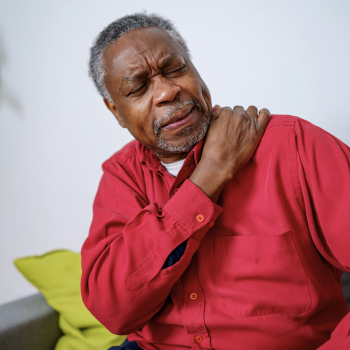Can You Recognize Heart Disease?
Given how important the heart is to all of our body’s functions, it’s hard to imagine that you could miss something as big as a heart attack. But, according to the American Heart Association, some heart attacks are sudden and severe, but others begin slowly, with little pain or discomfort. If you are not familiar with all the ways that a heart attack can occur, you can lose valuable time and heart muscle by not seeking care as soon as symptoms appear.
Here’s what you need to pay attention to:
Common Symptoms of Heart Disease
-
Chest Problems: This is the most common symptom and can manifest itself as pressure, squeezing, fullness, or pain in the middle or left side of the chest. The problems may last more than a few minutes or come back quickly.
-
Pain in Other Areas: Discomfort may also radiate to other parts of the upper body, such as one or both arms, back, neck, jaw or stomach.
-
Shortness of Breath: This may occur with or without chest discomfort and can be a major sign of heart disease.
-
Cold sweat and nausea: Cold sweats, nausea, or light-headedness are additional symptoms that may accompany a heart attack.
-
Unexplained Fatigue: Feeling unusually tired or weak, even after getting enough rest.
-
Dizziness or light-headedness: Fainting or fainting, especially when you stand up quickly or during exertion, can indicate a heart problem.
-
Abdominal pain or discomfort: Symptoms such as nausea, abdominal pain, or a feeling of fullness may be mistaken for gastrointestinal problems but may indicate heart disease.
Symptoms in Women
Although chest pain is the most common symptom in both men and women, women may have additional unusual symptoms, such as nausea, vomiting, back or jaw pain, and extreme fatigue. These symptoms can sometimes lead to a misdiagnosis or delay in treatment.
Silent Heart Attacks
Some heart attacks are “silent,” meaning they occur without typical symptoms such as chest pain. Instead, people may experience seemingly unrelated symptoms, such as chronic fatigue and poor appetite.
Recognizing these symptoms and responding immediately can greatly improve outcomes during a heart attack. If you suspect that you or someone else is having a heart attack, it is important to act quickly:
-
Call 911 Immediately: This is the fastest way to get life-saving treatment. Emergency medical services can begin treatment upon arrival and ensure rapid transport to hospital.
-
Take Aspirin if recommended: Chewing aspirin can help reduce heart damage by preventing blood clots, but take it only when advised by a health care provider or emergency personnel.
-
Do not isolate yourself: If possible, ask someone to take you to the hospital or wait for an ambulance.
Scott RoggeMD, FACC, is the Medical Director at Southwestern Vermont Medical Center Cardiology.
707
#Recognize #Heart #Disease
